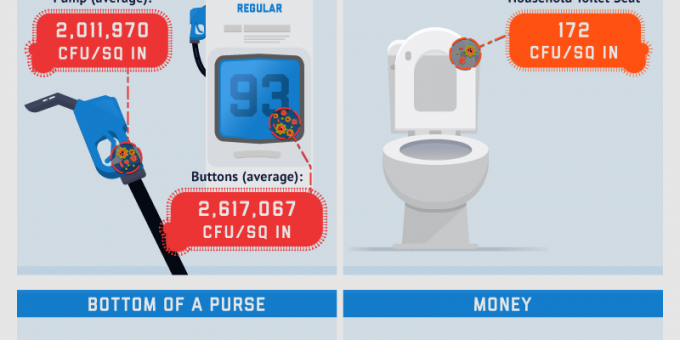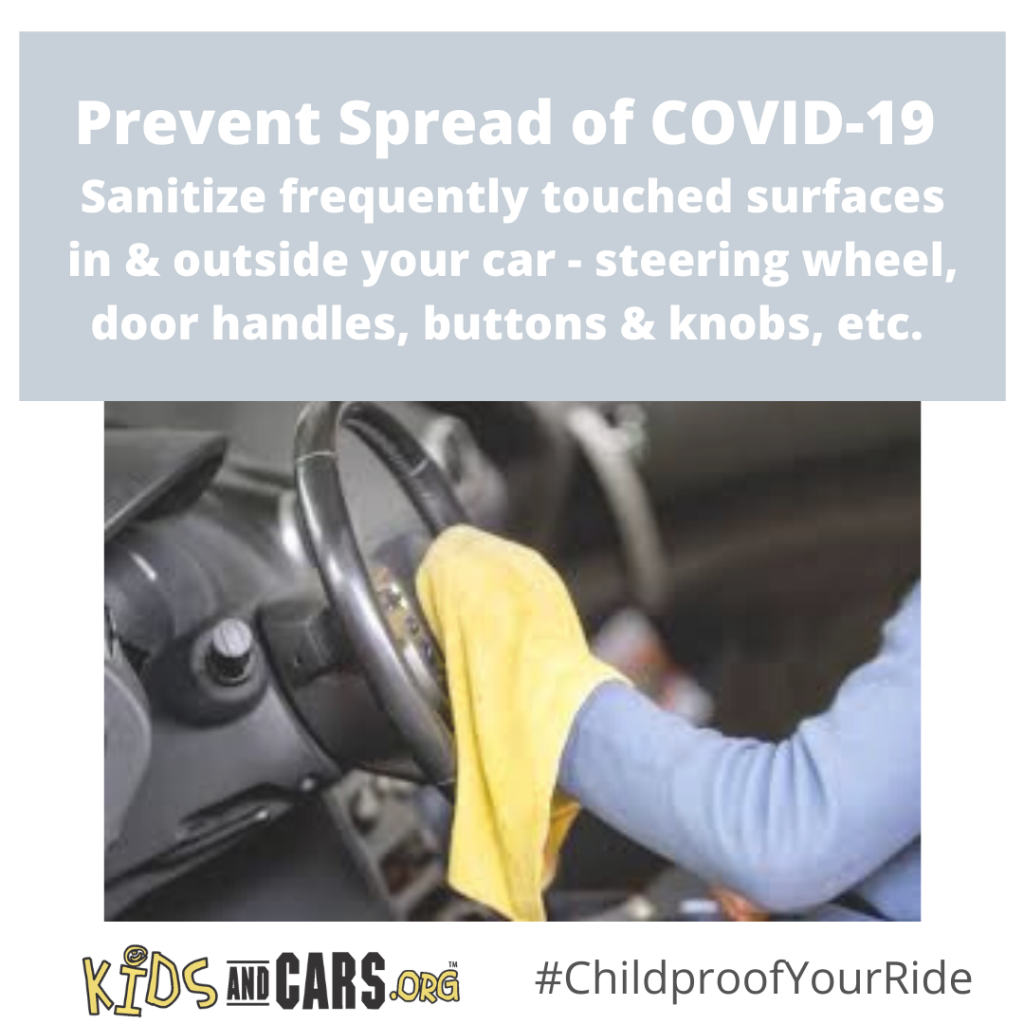
(UNDATED) – Advice for preventing the spread of the novel coronavirus is everywhere, but no one is warning Americans about the threats posed inside their cars. KidsAndCars.org’s ‘Childproof Your Ride’ program is focused on childproofing not only your home but also your vehicle. The program is now urging drivers to sanitize their vehicles as they do their home to prevent the spread of COVID-19.

Germs picked up in public places are deposited on your keys, door handles and steering wheel, just to name a few. “KidsAndCars.org is deeply concerned about these often overlooked ‘hot spots’ and wants to bring immediate attention to proactive measures Americans can take,” warns Janette Fennell, president of KidsAndCars.org. “As more and more geographic areas are experiencing community spread; we must all be vigilant on every trip as we work towards successful containment,” she continued.
The dirtiest surface in your vehicle is your steering wheel. Steering wheels have four times more germs than a public restroom’s toilet seat and are six times dirtier than smartphone screens. Tara LaMonte, MS, associate director of KidsAndCars.org emphasized, “This creates a breeding ground for bacteria and viruses to thrive including COVID-19. Cleaning and sanitizing our vehicles should become a regular practice to protect our families, especially during cold and flu season.”
Almost 40 million Americans fill up their gas tanks on a daily basis, yet most people don’t think twice before grabbing the pump. However, gas pump handles are “highly contaminated” with microbes associated with illness and disease. They have 11,000 times more bacteria than the common household toilet seat according to a study conducted by busbud.com.

COVID-19 Vehicle-Related Protective Measures from KidsAndCars.org: Sanitize frequently touched surfaces inside and outside your vehicle including:
- Car keys & fobs
- Door handles
- Steering wheels
- Gear shift
- Radio, GPS & other buttons & dials
- Seat belts, car seats
- Cell phones
- Purses or diaper bags
- Travel cups/holders
Surfaces that are dirty (all of them) should be cleaned using soap & water prior to sanitization. The Environmental Protection Agency (EPA) provides a list of effective disinfecting products, but most common household disinfectants should be effective.
Use a disinfecting wipe or a disposable tissue when touching surfaces such as:
- Gas Pumps & key pads
- Public charging stations
- Parking meters
- Toll booths
- Drive through ATMS & other touch screens
- Pens at drive-throughs at banks, pharmacies, etc.
Using rideshares, taxis, trains or public buses:
- Avoid using rideshares or public transportation if alternatives are available
- Avoid touching as many surfaces as possible & keep your hands off your face
- Opt for using credit or debit cards instead of cash (money harbors many germs!)
- Sit as far away from other passengers as possible
- Bring sanitizing wipes and wipe down seat belts, door handles, arm rests, etc.
- Use hand sanitizer with at least 70 percent alcohol
- Wash hands with soap and water for 20 seconds as soon as possible after exiting any form of transportation
Direct link to tips: https://www.kidsandcars.org/covid_19/
The ‘Childproof Your Ride’ program helps educate families on the many dangers children face both inside and outside vehicles and provides proactive tips for families to stay safe. The program informs families about safety features they may not know exist on their current vehicle and advice about aftermarket products they can add to enhance the safety of their vehicle.
Prevention is the key to keeping our families safe. No amount of preparedness ever goes to waste.
KidsAndCars.org encourages parents and educators to visit the “Childproof Your Ride” website for specific information on how to protect children in and around vehicles and the CDC website for advice and the most recent updates and information about the coronavirus.



